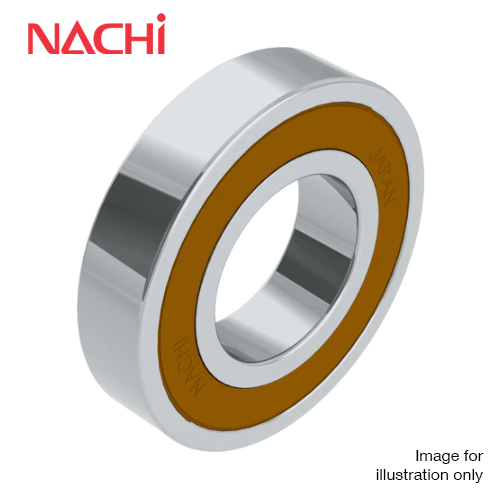When it comes to finding the best bearings, you’re faced with countless options. Yet, for those who need a balance of performance and affordability, the question arises: How do NACHI bearings stack up against other major brands like SKF and KOYO? This guide will explore how NACHI bearings meet various performance standards, discuss their cost-effectiveness, and compare them to other top brands. By understanding the key benefits and limitations, you’ll be better equipped to choose the right bearing for your needs.
What Sets NACHI Apart?
NACHI is often highlighted among well-known bearing brands for its strong focus on both quality and innovation. Over the years, it has become a trusted choice in industries requiring consistent, durable bearings, especially in automotive, industrial, and manufacturing settings. Here’s a breakdown of what makes NACHI a top competitor:
- Quality Standards – NACHI manufactures with stringent quality controls that make their bearings reliable in high-demand environments.
- Technological Innovation – NACHI continuously innovates, incorporating advanced materials and designs to improve bearing life and performance.
- Cost Efficiency – One of NACHI’s strongest appeals is its affordability compared to other high-end brands. This makes it accessible to a broader range of applications without compromising much on quality.

Bearing Performance Comparison: Durability and Load Capacity
The durability of a bearing largely determines its suitability for long-term, intensive use. NACHI bearings are well-regarded for their resilience and steady performance in moderate to high-load conditions. Here’s how they compare to brands like SKF:
- Durability – NACHI bearings are designed to withstand moderate load pressures over extended periods, offering an optimal solution for applications that don’t push the boundaries of heavy-load capacities.
- Load Capacity – While SKF bearings may have the edge in heavy-duty applications, NACHI bearings provide excellent load-bearing abilities for a wide variety of needs, from industrial machines to vehicles.
- Resistance to Wear – In standard industrial applications, NACHI’s bearings perform reliably under general wear and tear, reducing maintenance frequency.
Cost vs. Quality Bearings Comparison: Value in Every Application
A recurring question is: Are NACHI bearings worth the price compared to SKF, KOYO, or Timken? While some brands carry a premium for specialised applications, NACHI bearings tend to be more budget-friendly, making them a go-to for those balancing quality and cost.
- Affordable Pricing – For businesses needing bulk orders without breaking the bank, NACHI bearings represent a practical choice.
- Quality-to-Cost Ratio – NACHI achieves a high quality-to-cost ratio, meaning you get durable bearings at a fraction of the price of some premium brands.
- Low Maintenance Costs – By focusing on durable materials, NACHI bearings often require less maintenance than some other brands in comparable price ranges, helping to reduce the total cost of ownership.

How Do NACHI Bearings Compare to SKF?
A direct comparison between NACHI and SKF reveals some clear differences. Both brands offer bearings designed for high performance, but each has its unique advantages depending on the intended use.
- Precision Engineering – SKF is often preferred in applications needing extreme precision, such as aerospace and heavy industrial settings.
- Maintenance and Durability – NACHI bearings are praised for their ease of maintenance, while SKF may require more attention in highly demanding environments.
- Range of Applications – NACHI provides bearings that excel in everyday, medium-duty applications, whereas SKF bearings may be better suited to environments where long-lasting resilience under heavy stress is essential.
Key Factors to Consider When Choosing Bearings
When deciding on a bearing brand, several essential factors should guide your choice:
- Application Needs – Some industries require high tolerance to extreme conditions, while others focus on cost-effectiveness.
- Load-Bearing Capabilities – For tasks involving heavy lifting, SKF might outperform due to its high load ratings.
- Frequency of Use – NACHI bearings are ideal for daily-use machinery but might require replacement sooner in high-stress environments compared to SKF.
- Budget Constraints – NACHI offers one of the best cost-to-quality ratios, making it a good choice for those on a budget.
- Long-Term Maintenance – Bearings that require minimal maintenance can be cost-savers in the long run, making NACHI a preferred option in applications where reduced maintenance is key.
Ultimately, your choice between NACHI and other bearing brands depends on your unique requirements. NACHI bearings strike a strong balance between cost-effectiveness and quality, especially for applications that don’t require the highest load capacity or extreme precision. Whether you’re upgrading existing machinery or setting up a new system, NACHI provides reliable performance at a reasonable cost.
As always if you are unsure our team at Aire Bearings are always on hand to help you decide!

